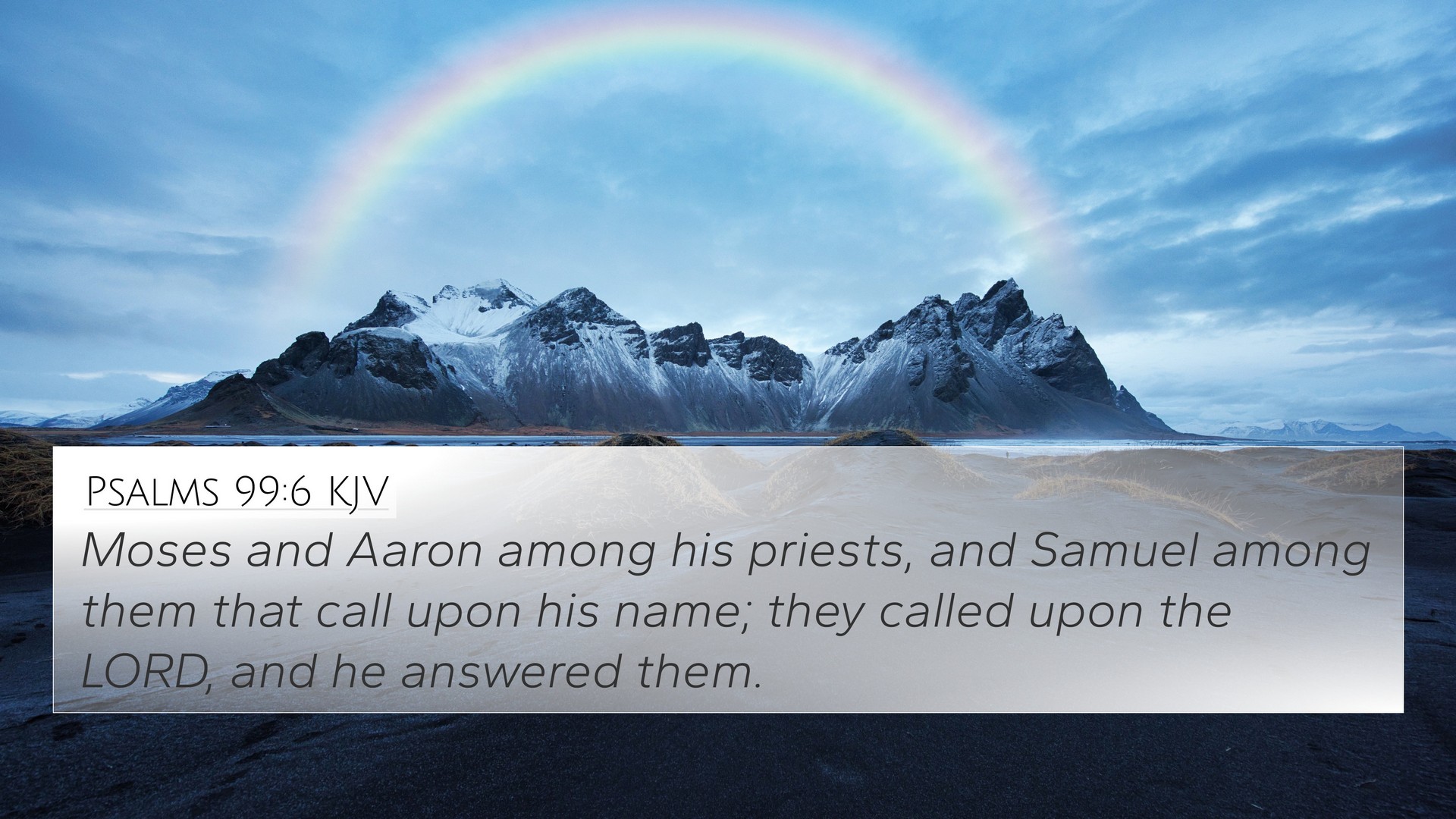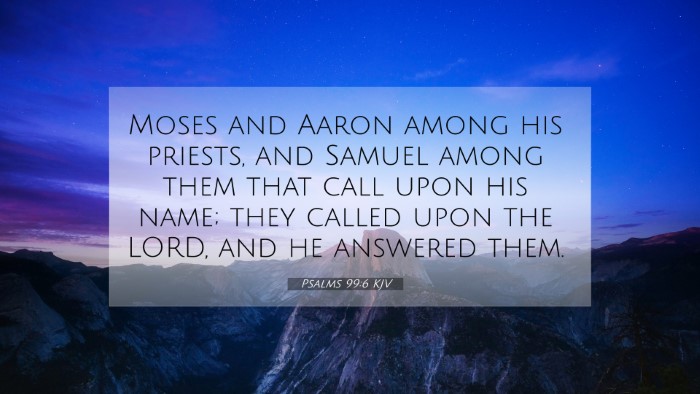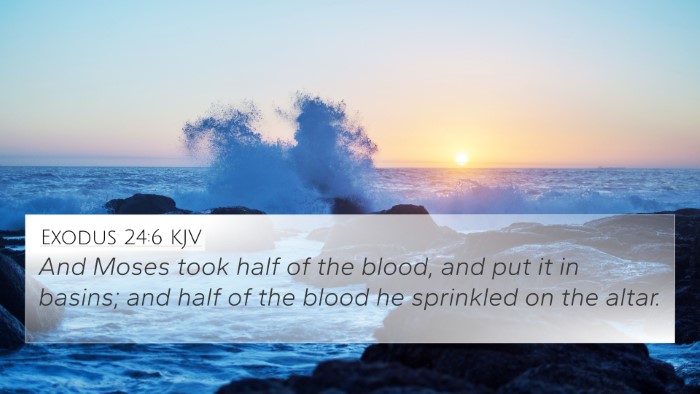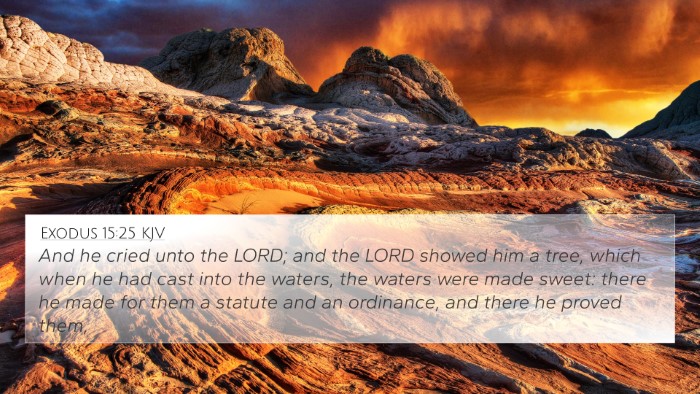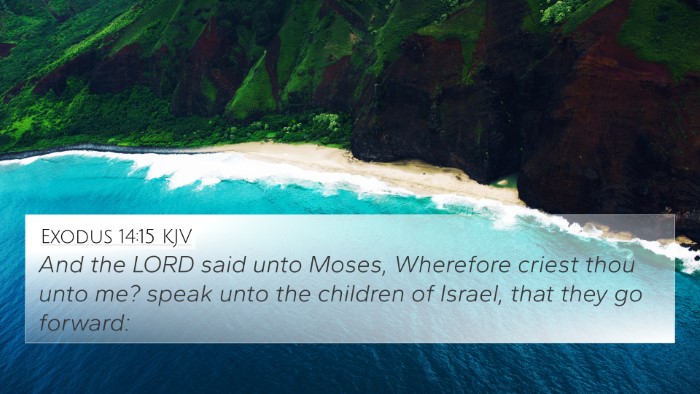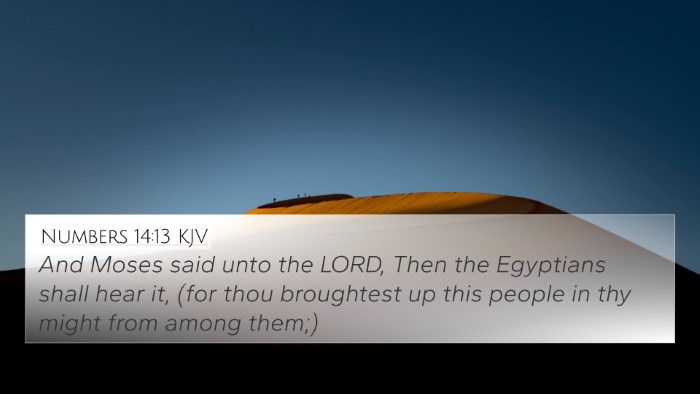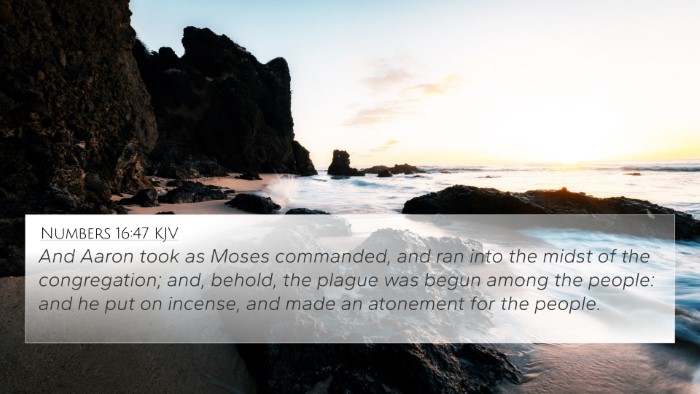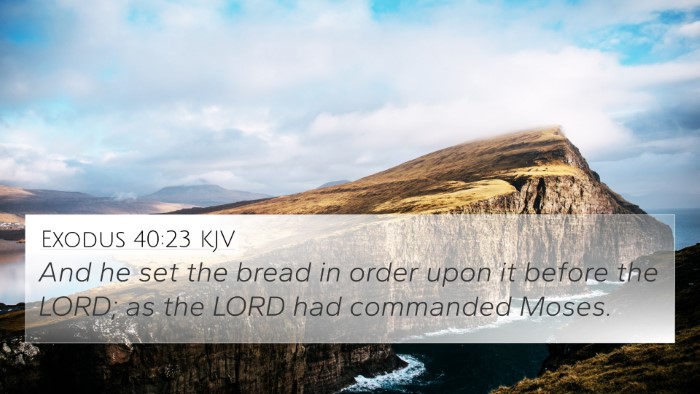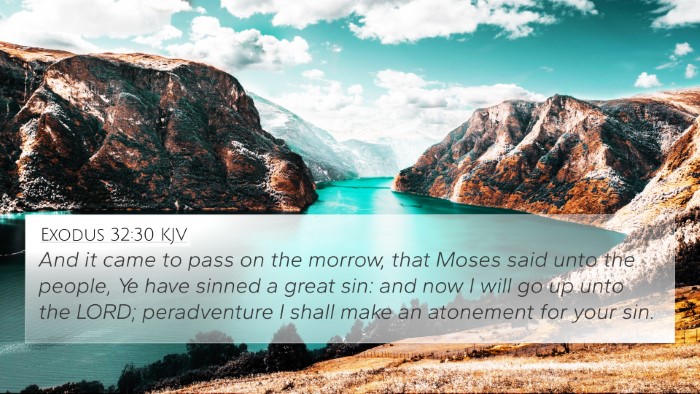Psalms 99:6 - Understanding the Verse
Psalms 99:6 states: "Moses and Aaron were among his priests, and Samuel was among those who called upon his name; they called to the LORD, and he answered them." This verse highlights the significant roles of Moses, Aaron, and Samuel in the history of Israel, emphasizing their relationship with God and His responsiveness to their prayers.
Summary of Insights
In this verse, the Psalmist draws attention to the exemplary figures of Moses, Aaron, and Samuel, showcasing their priestly duties and their role in seeking God on behalf of the people. The use of the phrase "called upon his name" suggests a profound connection to prayer and worship, indicating that these individuals had a direct line to God and experienced His faithfulness.
Commentary Insights
-
Matthew Henry:
Henry emphasizes the importance of these figures as mediators between God and Israel. He notes that their intercessory prayers highlight God's willingness to respond to those who earnestly seek Him. This verse serves as a reminder of God’s readiness to answer prayers, particularly those offered by His chosen servants.
-
Albert Barnes:
Barnes discusses how the mention of these great leaders illustrates the connection between worship and prayer. He points out that Moses and Aaron represented both the leadership and the priestly functions necessary for Israel's spiritual health. Samuel, as a prophet, further emphasizes the significant role of divine communication.
-
Adam Clarke:
Clarke highlights the notion of calling upon the Lord and receiving answers as a central theme in the lives of these leaders. He also emphasizes the historical context of their leadership during critical times in Israel’s history, which makes their prayers even more meaningful.
Cross-References
This verse can be cross-referenced with several other scriptural passages that explore similar themes of prayer, intercession, and divine response:
- Exodus 32:11-14: Moses interceded for the Israelites when they sinned, showing the power of prayer to change God's mind.
- Leviticus 8:1-36: The consecration of Aaron as the high priest demonstrates the importance of priestly roles and their duties before God.
- 1 Samuel 7:9: Samuel offered a burnt offering and cried out to the Lord for Israel, illustrating his role as a prophet and intercessor.
- Jeremiah 15:1: God tells Jeremiah that even if Moses and Samuel stood before Him, His heart would not be toward this people, highlighting the unique authority prayer can wield.
- Hebrews 5:1-4: Discusses the role of a high priest and the need for someone to intercede for the people, relating it back to Aaron.
- John 14:13-14: Jesus emphasizes that whatever is asked in His name will be done, aligning with the concept of calling upon God.
- James 5:16: This verse affirms that the prayer of a righteous person is powerful and effective, resonating with the prayer lives of Moses, Aaron, and Samuel.
Thematic Connections
There are significant thematic connections in this verse that relate to various biblical concepts:
- Intercessory Prayer: The importance of standing in the gap for others is a recurring theme throughout scripture.
- Divine Response: God's responsiveness to prayer is a central theme in both the Old and New Testaments.
- Leadership and Holiness: The roles of Moses and Aaron serve as examples of faithful leaders who sought God’s will above their own.
- Covenant Relationships: The covenant between God and His people is reflected through these figures who played pivotal roles in Israel's spiritual heritage.
Practical Application
Reflecting on Psalms 99:6 provides practical applications for believers today:
- The Value of Prayer: Just as Moses, Aaron, and Samuel called upon the Lord, individuals are encouraged to develop a robust prayer life.
- Importance of Mediation: Understanding that Christ is the ultimate mediator reinforces the need for intercession in modern faith practices.
- Seeking God in Leadership: Those in positions of leadership should model their lives after these biblical figures, prioritizing prayer and obedience to God.
Final Thoughts
Psalms 99:6 serves as a rich reminder of the historical significance of prayer and the responsiveness of God to His faithful servants. By studying the intercessory roles of Moses, Aaron, and Samuel, believers can grasp the power and importance of earnest prayer in their own lives. This verse also encourages believers to use resources such as a Bible concordance or Bible cross-reference guide for enhancing their understanding and study of the Scriptures.
